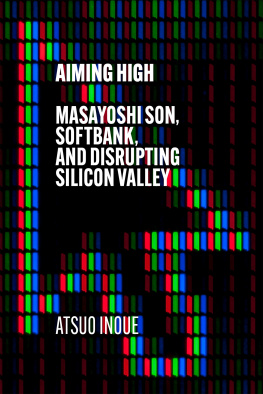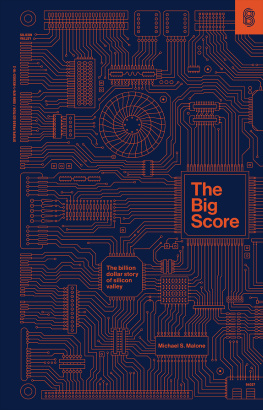Adrian Daub - What Tech Calls Thinking: An Inquiry Into the Intellectual Bedrock of Silicon Valley
Here you can read online Adrian Daub - What Tech Calls Thinking: An Inquiry Into the Intellectual Bedrock of Silicon Valley full text of the book (entire story) in english for free. Download pdf and epub, get meaning, cover and reviews about this ebook. year: 2020, publisher: Farrar, Straus and Giroux, genre: Romance novel. Description of the work, (preface) as well as reviews are available. Best literature library LitArk.com created for fans of good reading and offers a wide selection of genres:
Romance novel
Science fiction
Adventure
Detective
Science
History
Home and family
Prose
Art
Politics
Computer
Non-fiction
Religion
Business
Children
Humor
Choose a favorite category and find really read worthwhile books. Enjoy immersion in the world of imagination, feel the emotions of the characters or learn something new for yourself, make an fascinating discovery.

- Book:What Tech Calls Thinking: An Inquiry Into the Intellectual Bedrock of Silicon Valley
- Author:
- Publisher:Farrar, Straus and Giroux
- Genre:
- Year:2020
- Rating:4 / 5
- Favourites:Add to favourites
- Your mark:
- 80
- 1
- 2
- 3
- 4
- 5
What Tech Calls Thinking: An Inquiry Into the Intellectual Bedrock of Silicon Valley: summary, description and annotation
We offer to read an annotation, description, summary or preface (depends on what the author of the book "What Tech Calls Thinking: An Inquiry Into the Intellectual Bedrock of Silicon Valley" wrote himself). If you haven't found the necessary information about the book — write in the comments, we will try to find it.
Adrian Daub: author's other books
Who wrote What Tech Calls Thinking: An Inquiry Into the Intellectual Bedrock of Silicon Valley? Find out the surname, the name of the author of the book and a list of all author's works by series.
What Tech Calls Thinking: An Inquiry Into the Intellectual Bedrock of Silicon Valley — read online for free the complete book (whole text) full work
Below is the text of the book, divided by pages. System saving the place of the last page read, allows you to conveniently read the book "What Tech Calls Thinking: An Inquiry Into the Intellectual Bedrock of Silicon Valley" online for free, without having to search again every time where you left off. Put a bookmark, and you can go to the page where you finished reading at any time.
Font size:
Interval:
Bookmark:


The author and publisher have provided this e-book to you for your personal use only. You may not make this e-book publicly available in any way. Copyright infringement is against the law. If you believe the copy of this e-book you are reading infringes on the authors copyright, please notify the publisher at: us.macmillanusa.com/piracy.
This is a book about the history of ideas in a place that likes to pretend its ideas dont have any history. The tech industry is largely disinterested in the kinds of questions this book raises; tech companies simply create a product and then look to market it. Mark Zuckerberg put it as follows: I hadnt been very good about communicating that we were trying to go for this mission. We just showed up every day and kind of did what we thought was the right next thing to do. The mission, the big question, became important only later. Only in hindsight did he have to ask himself: How do I explain this to journalists? The U.S. House of Representatives? Myself? At the same time, Zuckerbergs quote is meant to imply that there had been such a mission all along, that showing up every day and working on a good, monetizable product was never all Facebook was about. What Tech Calls Thinking concerns where tech entrepreneurs and the press outlets that adore them look once they reach the point at which they need to contextualize what theyre doingwhen their narrative has to fit into a broader story about the world in which we all live and work.
As Silicon Valley reshapes the world, journalists, academics, and activists are spending more time scrutinizing the high-minded ideals by which companies like Google and Facebook claim to be guided. As the journalist Franklin Foer put it, Silicon Valley companies have a set of ideals, but they also have a business model. They end up reconfiguring your ideals in order to justify their business model. This book asks where companies ideals come from. The question is far from a sideshow: It concerns how the changes Silicon Valley brings about are made plausible and made to seem inevitable. It concerns the way those involved in the tech industry understand their projects and the industrys relationship to the wider world. It isnt so much about the words that people in Silicon Valley use to describe their day-to-day businessinteresting books could be and have been written about the thinking contained in terms like user, platform, or design. Rather, it is about what the tech world thinks its doing when it looks beyond its day-to-day businessthe part about changing the world, about disrupting X or liberating Y. The stuff about Tahrir Square protests and $27 donations. What ideas begin to track then? And what is their provenance?
Indeed, the very fact that these ideas have histories matters. Silicon Valley is good at reframing questions, problems, and solutions, as the jargon of design thinking puts it. And it is often deeply unclear what the relationship is between the reframed versions and the original ones. Its easy to come away with the sense that the original way of stating the problem is made irrelevant by the reframing. That perhaps even the original problem is made irrelevant. Some of this is probably inherent in technological change: its hard to remember the history of something that changes how memory works, after all. In the 1960s, the communication theorist Marshall McLuhan (19111980) proposed that the effects of technology do not occur at the level of opinions or concepts, but alter sense ratios or patterns of perception steadily and without any resistance.
But clearly thats only part of the story. To some extent, the amnesia around the concepts that tech companies draw on to make public policy (without admitting that they are doing so) is by design. Fetishizing the novelty of the problem (or at least its framing) deprives the public of the analytic tools it has previously brought to bear on similar problems. Granted, quite frequently these technologies are truly novelbut the companies that pioneer them use that novelty to suggest that traditional categories of understanding dont do them justice, when in fact standard analytic tools largely apply just fine. But this practice tends to disenfranchise all of the people with a long tradition of analyzing these problemswhether theyre experts, activists, academics, union organizers, journalists, or politicians.
Consider how much mileage the tech industry has gotten out of its technological determinism. The industry likes to imbue the changes it yields with the character of natural law: If I or my team dont do this, someone else will. Such determinism influences how students pick what companies to work for; it influences what work theyre willing to do there. Or consider how important words like disruption and innovation are to the sway the tech industry holds over our collective imagination. How they sweep aside certain parts of the status quo but leave other parts mysteriously untouched. How they implicitly cast you as a stick-in-the-mud if you ask how much revolution someone is capable of when that person represents billions in venture capital investment.
This is where the limits of our thinking very quickly become the limits of our politics. What if what goes by the name of innovation is ultimately just an opportunistic exploitation of regulatory gaps? And before we blame those gaps, keep in mind that regulation is supposed to be slow-moving, deliberate, a little bit after-the-fact. A lot of tech companies make their home between the moment some new way to make money is discovered and the moment some government entity gets around to deciding if its actually legal. In fact, they frequently plonk down their headquarters there.
Take Uber and Lyft, for example. The two ride-share giants are in many ways more agile and cheaper for the consumer than the taxi services theyre slowly destroying, and these companies are accordingly popular with large investment funds, for one primary reason: their drivers are independent contractors who have no bargaining power, no benefits, and very few legal protections. Everything these companies dofrom the rewards programs they set up for their contractors to the way the algorithms that assign rides to drivers seem to punish casual drivingis actually designed to nudge their drivers inch by inch toward a full-time employment that they arent allowed to call full-time employment. The moment this state of affairs is recognized, all kinds of rules will apply to these companies, making them even more unprofitable and likely putting them out of business. But until such a moment, the companies will explain to you ad nauseam how theyre different and new and how you are missing the point when you apply established categories to them.
This book is about concepts and ideas that pretend to be novel but that are actually old motifs playing dress-up in a hoodie. The rhetoric of Silicon Valley may seem unprecedented, but in truth it is steeped in some pretty long-standing American traditionsfrom the tent revival to the infomercial, from predestination to self-help. The point of concepts in general is to help us make distinctions that matter, but the concepts I discuss in the chapters that follow frequently serve to obscure such distinctions. The inverse can also be true: some of the concepts in this book aim to create distinctions where there are none. Again and again well come across two phenomena that to the untrained eye look identical, but a whole propaganda industry exists to tell us they are not. Taxi company loses money; Uber loses moneyapparently not the same. The tech industry ideas portrayed in this book are not wrong, but they allow the rich and powerful to make distinctions without difference, and elide differences that are politically important to recognize. They arent dangerous ideas in themselves. Their danger lies in the fact that they will probably lead to bad thinking.
Font size:
Interval:
Bookmark:
Similar books «What Tech Calls Thinking: An Inquiry Into the Intellectual Bedrock of Silicon Valley»
Look at similar books to What Tech Calls Thinking: An Inquiry Into the Intellectual Bedrock of Silicon Valley. We have selected literature similar in name and meaning in the hope of providing readers with more options to find new, interesting, not yet read works.
Discussion, reviews of the book What Tech Calls Thinking: An Inquiry Into the Intellectual Bedrock of Silicon Valley and just readers' own opinions. Leave your comments, write what you think about the work, its meaning or the main characters. Specify what exactly you liked and what you didn't like, and why you think so.


